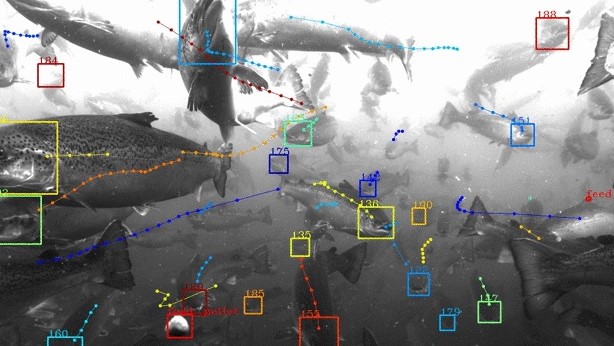Google parent Alphabet wants to protect the ocean with 'fish recognition'
The X experimental division’s Tidal team aims to make fish farming more sustainable with cutting-edge tech


Google’s parent company Alphabet has revealed Tidal, a team in its X experimental division that will use the company’s artificial intelligence technology to help reduce human impact on the world’s oceans.
A major focus of the Tidal team has been centred on a system that uses image recognition to recognise and monitor individual fish in the hundreds and thousands that make up the population of fish farms.
Through the use of underwater cameras and AI-powered computer vision, the three-year project aims to better track farmed fish such as salmon and yellowtail, with the goal of cutting down the amount of manual inspection fish farmers have to do; such a process is said to be overly time-consuming, unreliable, and impossible to scale.
“Our initial area of focus is on developing technologies that bring greater visibility and understanding of what’s happening under the water,” explained Neil Davé, general manager at Tidal.vfg.
“After spending lots of time out on the water, we’ve developed an underwater camera system and a set of machine perception tools that can detect and interpret fish behaviours not visible to the human eye. Our software can track and monitor thousands of individual fish over time, observe and log fish behaviours like eating, and collect environmental information like temperature and oxygen levels.
“This kind of information gives farmers the ability to track the health of their fish and make smarter decisions about how to manage the pens - like how much food to put in the pens, which we hope can help reduce both costs and pollution.”
While this system should help fish farmers work more efficiently and help reduce pollution, a wider goal is to help make fish farming more sustainable, as Davé noted that fish not only feed some three billion people, but also have a “low carbon footprint relative to other sources of animal protein”.
Get the ITPro daily newsletter
Sign up today and you will receive a free copy of our Future Focus 2025 report - the leading guidance on AI, cybersecurity and other IT challenges as per 700+ senior executives
This could then go some way to reducing the reliance of humans on animal protein from land-based mammals, such as cows and pigs.
The Tidal team is starting with fish farming but intends to also apply Alphabet’s technological clout to the wider ocean environment.
“As we validate our technology and learn more about the ocean environment, we plan to apply what we’ve learned to other fields and problems, with the help of ocean health experts and other organizations eager to find new solutions to protect and preserve this precious resource,” Davé concluded.
Such use of AI technology is an example of digital transformation pushed to the cutting-edge and used in environments where one would not normally expect the latest tech.
Similar work is also being done by researchers at the University of Sheffield’s, who are attempting to configure AI software to enable drones to navigate environments in the same fashion as bees.
Roland is a passionate newshound whose journalism training initially involved a broadcast specialism, but he’s since found his home in breaking news stories online and in print.
He held a freelance news editor position at ITPro for a number of years after his lengthy stint writing news, analysis, features, and columns for The Inquirer, V3, and Computing. He was also the news editor at Silicon UK before joining Tom’s Guide in April 2020 where he started as the UK Editor and now assumes the role of Managing Editor of News.
Roland’s career has seen him develop expertise in both consumer and business technology, and during his freelance days, he dabbled in the world of automotive and gaming journalism, too.
-
 Bigger salaries, more burnout: Is the CISO role in crisis?
Bigger salaries, more burnout: Is the CISO role in crisis?In-depth CISOs are more stressed than ever before – but why is this and what can be done?
By Kate O'Flaherty Published
-
 Cheap cyber crime kits can be bought on the dark web for less than $25
Cheap cyber crime kits can be bought on the dark web for less than $25News Research from NordVPN shows phishing kits are now widely available on the dark web and via messaging apps like Telegram, and are often selling for less than $25.
By Emma Woollacott Published